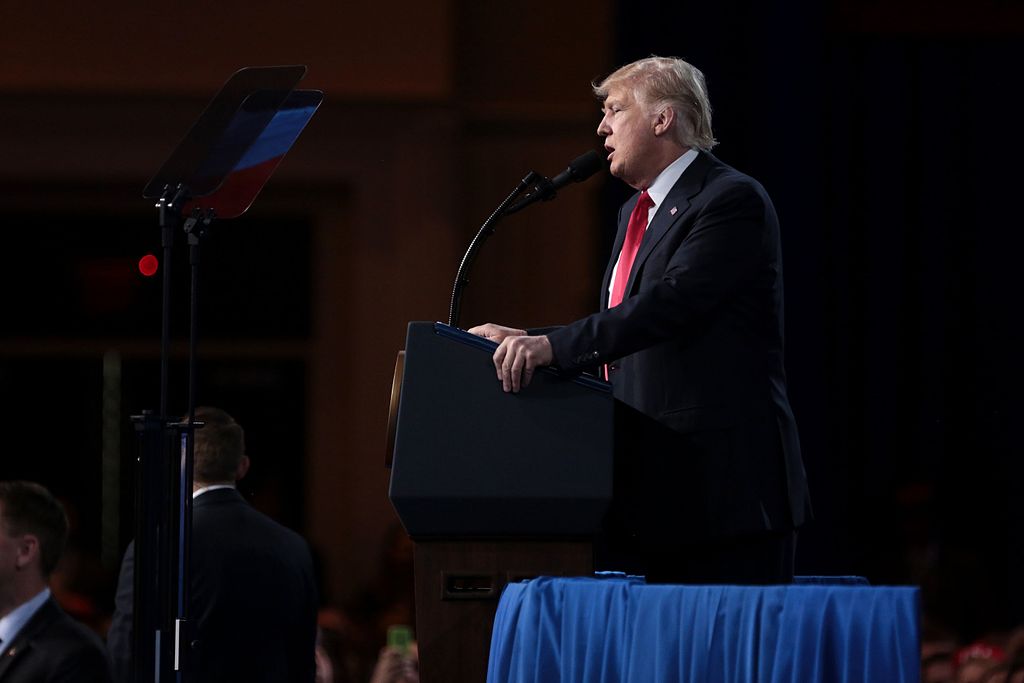Automotive giants Toyota and Ford are facing scrutiny after federal filings revealed both companies contributed $1 million each to former President Donald Trump’s 2017 inauguration. The donations, while legal, have reignited discussions over corporate influence in politics and the ethical implications of such financial contributions.
Toyota and Ford’s Contributions Under the Microscope
According to public records, Toyota and Ford were among several corporations that made significant contributions to Trump’s inaugural committee, which raised a record-breaking $107 million. Both companies issued statements defending their donations, emphasizing that their contributions were standard practice aimed at supporting the peaceful transition of power.
Toyota’s statement clarified that its donation was “in line with the company’s commitment to civic engagement and support for U.S. institutions.” Similarly, Ford described its contribution as a gesture “to honor American traditions and demonstrate support for democratic principles.”
However, critics argue that such donations raise ethical questions about corporate motives, especially given the auto industry’s interest in influencing policies related to trade, emissions, and labor regulations. Under the Trump administration, policies such as rolling back fuel efficiency standards and renegotiating NAFTA were seen as beneficial to automakers, adding further fuel to the controversy.
The Role of Corporate Donations in Politics
Political analysts suggest that corporate donations to inaugurations, while not new, often carry the perception of an implicit quid pro quo. Critics argue that such contributions undermine public trust in democratic institutions, as they can be perceived as attempts to curry favor with incoming administrations.
Transparency advocates have also raised concerns about the lack of stringent regulations governing inaugural donations. While the Federal Election Commission oversees campaign financing, inauguration funds operate under a different set of rules, allowing corporations to contribute unlimited amounts.
Toyota and Ford’s financial support for Trump’s inauguration has prompted renewed calls for reform, with some lawmakers pushing for stricter disclosure requirements and donation limits. However, defenders of the current system argue that such contributions are an expression of free speech and a legitimate way for companies to participate in the political process.
Public Reactions Highlight Polarized Opinions
News of Toyota and Ford’s $1 million donations quickly spread on social media, sparking a wave of reactions from netizens across the political spectrum:
- @AutoEthicsNow tweeted, “Corporate donations like these are exactly why we need more transparency in political funding. Democracy deserves better.”
- @MAGA4Life commented, “Toyota and Ford know a winner when they see one! Trump stood for American business and jobs.”
- @GreenCarAdvocate posted, “Both companies should focus more on reducing emissions than on cozying up to politicians. Disappointing to see.”
- @PolicyWatchdog added, “These donations prove the need for stricter limits on corporate influence in politics. This is alarming.”
- @MiddleAmericaMom shared, “I’m just glad automakers were supporting a president who wanted to protect U.S. manufacturing. That’s what matters.”
- @CorporateSkeptic wrote, “Toyota and Ford claim it’s about democracy, but let’s not ignore the policy benefits they likely gained.”



 NYC Mayor Zohran Mamdani Meets President Trump to Tackle Housing Crisis and ICE Detentions
NYC Mayor Zohran Mamdani Meets President Trump to Tackle Housing Crisis and ICE Detentions  Argentina Senate Approves Bill to Lower Age of Criminal Responsibility to 14
Argentina Senate Approves Bill to Lower Age of Criminal Responsibility to 14  Meta Signs Multi-Billion Dollar AI Chip Deal With Google to Power Next-Gen AI Models
Meta Signs Multi-Billion Dollar AI Chip Deal With Google to Power Next-Gen AI Models  Trump Warns Iran as Gulf Conflict Disrupts Oil Markets and Global Trade
Trump Warns Iran as Gulf Conflict Disrupts Oil Markets and Global Trade  OpenAI Hires Former Meta and Apple AI Leader Ruomin Pang Amid Intensifying AI Talent War
OpenAI Hires Former Meta and Apple AI Leader Ruomin Pang Amid Intensifying AI Talent War  FAA Plans Flight Reductions at Chicago O’Hare as Airlines Ramp Up Summer Schedules
FAA Plans Flight Reductions at Chicago O’Hare as Airlines Ramp Up Summer Schedules  Philippines, U.S., and Japan Conduct Joint Naval Drills in South China Sea to Boost Maritime Security
Philippines, U.S., and Japan Conduct Joint Naval Drills in South China Sea to Boost Maritime Security  Amazon’s $50B OpenAI Investment Tied to AGI Milestone and IPO Plans
Amazon’s $50B OpenAI Investment Tied to AGI Milestone and IPO Plans  Toyota Plans $19 Billion Share Sale in Major Corporate Governance Reform Move
Toyota Plans $19 Billion Share Sale in Major Corporate Governance Reform Move  U.S.-Israel Strike on Iran Escalates Middle East Conflict, Trump Claims Khamenei Killed
U.S.-Israel Strike on Iran Escalates Middle East Conflict, Trump Claims Khamenei Killed  APEX Tech Acquisition Inc. Raises $111.97 Million in NYSE IPO Under Ticker TRADU
APEX Tech Acquisition Inc. Raises $111.97 Million in NYSE IPO Under Ticker TRADU  Trump Floats “Friendly Takeover” of Cuba as Rubio Reportedly Engages in Talks
Trump Floats “Friendly Takeover” of Cuba as Rubio Reportedly Engages in Talks  Middle East Airspace Shutdown Disrupts Global Flights After U.S.-Israel Strikes on Iran
Middle East Airspace Shutdown Disrupts Global Flights After U.S.-Israel Strikes on Iran  Pentagon to Halt Ivy League Programs for U.S. Military Officers Starting 2026
Pentagon to Halt Ivy League Programs for U.S. Military Officers Starting 2026  Hyundai Motor Group to Invest $6.26 Billion in AI Data Center, Robotics and Renewable Energy Projects in South Korea
Hyundai Motor Group to Invest $6.26 Billion in AI Data Center, Robotics and Renewable Energy Projects in South Korea  Paramount Skydance to Acquire Warner Bros Discovery in $110 Billion Media Mega-Deal
Paramount Skydance to Acquire Warner Bros Discovery in $110 Billion Media Mega-Deal  Netanyahu Suggests Iran’s Supreme Leader Khamenei May Have Been Killed in Israeli-U.S. Strikes
Netanyahu Suggests Iran’s Supreme Leader Khamenei May Have Been Killed in Israeli-U.S. Strikes 































